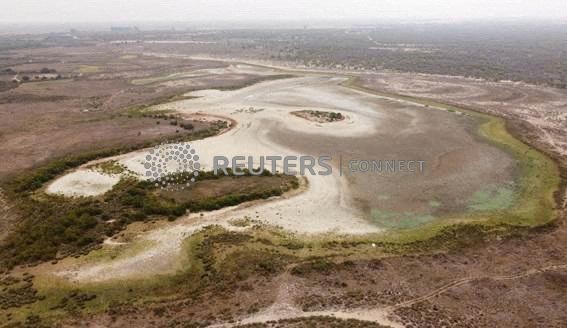Madrid(Reuters) – Spain’s government and the southern Andalusia region on Monday signed an agreement to protect the endangered Donana wildlife reserve, bringing an end to a two-year dispute.
The national park, threatened by climate change and illegal irrigation, is in critical condition with lagoons drying out and biodiversity declining.
Scientists have called for a reduction in the pumping of water in an area where 38% of population lives from farming or related activities.
Droughts in southern Spain linked to climate change have exacerbated conflicts between farmers and environmentalists over scarce water resources.
Farmers in five towns north of Donana will be compensated if they agree to stop irrigating and convert their land to forest or adopt rain-fed or sustainable crops, Environment Minister Teresa Ribera said.
In exchange, Andalusia’s conservative regional government withdrew a plan to legalise more water pumping for irrigation, which had sparked an outcry from environmentalists and a clash with the Socialist-led national government.
The deal includes the investment of 1.4 billion euros($1.53 billion) in the area until 2027 for measures such as improving water management, conservation and the restoration of biodiversity while compensating farmers.
The agreement will also seek to improve conditions for seasonal workers such as strawberry pickers.
The “historic” deal reconciles the protection of Donana with economic development, Andalusia’s regional leader, Juan Manuel Moreno, told a news conference, adding that the livelihoods of many families in the area were at risk before the agreement.
Environmental group Greenpeace welcomed the deal but expressed concern about the potential for illegal irrigators to benefit from the compensation payments.
“If this were the case, it would financially reward those who break the law,” Greenpeace said in an emailed statement.
The Donana national park lies atop a 2,700-square km (1,040 square mile) underground water reserve, one of the largest of its kind in Europe and an area almost twice the size of London.
The wetlands harbour many endemic and threatened species, such as freshwater eels and turtles, and provide an important refuge for migratory birds heading south after breeding in northern Europe.
($1 = 0.9168 euros)



